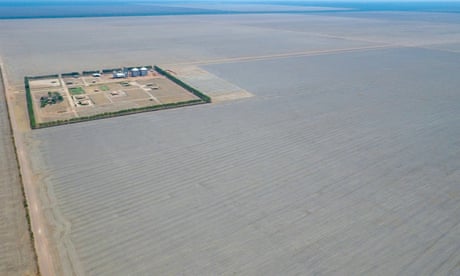LAB MEAT
Singapore’s approval of chicken cells grown in bioreactors is seen as landmark moment.
Cultured meat, produced in bioreactors without the slaughter of an animal, has been approved for sale by a regulatory authority for the first time. The development has been hailed as a landmark moment across the meat industry.
The “chicken bites”, produced by the US company Eat Just, have passed a safety review by the Singapore Food Agency and the approval could open the door to a future when all meat is produced without the killing of livestock, the company said.
Dozens of firms are developing cultivated chicken, beef and pork, with a view to slashing the impact of industrial livestock production on the climate and nature crises, as well as providing cleaner, drug-free and cruelty-free meat. Currently, about 130 million chickens are slaughtered every day for meat, and 4 million pigs. By weight, 60% of the mammals on earth are livestock, 36% are humans and only 4% are wild.
The cells for Eat Just’s product are grown in a 1,200-litre bioreactor and then combined with plant-based ingredients. Initial availability would be limited, the company said, and the bites would be sold in a restaurant in Singapore. The product would be significantly more expensive than conventional chicken until production was scaled up, but Eat Just said it would ultimately be cheaper.
A series of scientific studies have shown that people in rich nations eat more meat than is healthy for them or the planet. Research shows cutting meat consumption is vital in tackling the climate crisis and some scientists say this is the best single environmental action a person can take.
The companies developing lab-grown meat believe this is the product most likely to wean committed meat-eaters off traditional sources. Vegan diets are viewed as unappealing by some, and plant-based meat replacements are not always regarded as replicating the texture and flavour of conventional meat. Meat cultivated in bioreactors also avoids the issues of bacterial contamination from animal waste and the overuse of antibiotics and hormones in animals.
(From 'The Guardian', December 2020)
F


Comments
Post a Comment